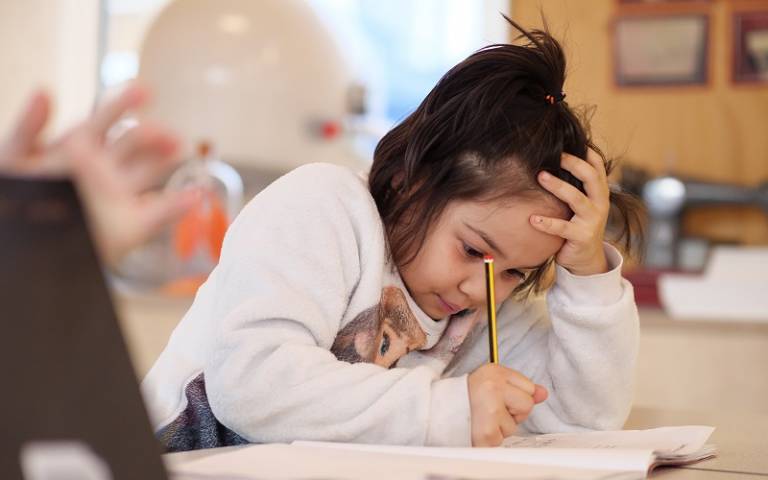Separating primary school children in preparation for SATs could be ‘damaging’
15 March 2021
A fear of poor SATs results is driving headteachers to separate pupils by ability despite the impact on children’s self-esteem and confidence, according to a study by UCL researchers.

The findings, published in in the peer-reviewed British Journal of Sociology of Education, provide new evidence of a high-stakes culture around testing where some pupils are prioritised above others and physically segregated from them.
The UCL Institute of Education (IOE) study, which included an online survey of 288 heads of primary schools in England and 20 in-depth interviews with headteachers, shows that more than a third (35%) said SATs were the reason for grouping children into different ability sets for English, and just under half (47%) said the same for maths.
Standard Assessment Tests (SATs) are used to assess a child’s educational progress and form the basis of school league tables. The most significant in Key Stage 2 take place in May of the final year of primary education (year 6). For this type of testing, the focus of recent research has been largely international, not on how schools and pupils in England are affected.
The paper shows evidence of three approaches used towards separating children in relation to SATs. The first was dividing by ability into sets, despite what the authors say is ‘increasing evidence of the disadvantages’. In some schools, pupils are moved from their normal class to different rooms/teachers, and some were even streamed permanently.
The study also highlights other practices adopted by schools, which include targeting resources at pupils on the borderline of passing SATs at the expense of children seen as unlikely to reach expected levels. The most significant finding was the growth of ‘intervention’ sessions where children are removed from normal lessons to plug gaps in their learning and be ‘fixed’ academically.
The authors warn that these approaches are part of a ‘potentially damaging’ system where some children are made to feel inferior and which raises questions about how groupings ‘might exacerbate inequalities’.
Report author Dr Alice Bradbury said, “A debate is needed about the consequences for primary school children around high-pressured learning assessments, and also for staffing and resources.
“These forms of disciplinary power are encouraged by the disciplinary function of SATs themselves and they place pressure on headteachers to prioritise results over the broader purposes of education.
“The SATs are in themselves a practice of division, designating children as at age related expectation (ARE) or not. This binary between success and failure, passing or failing, is a brutal division of children at age 11.
The authors also identified a new practice, which they say has been triggered by the increasing complexity of school league tables. These involved pupils on the borderline of reaching ‘greater depth’ (above the expected level for year 6) who are given special support, for example, before school and during holidays.
The authors acknowledge that divisions created by these practices would not be solved entirely without SATs, which are currently suspended because of the pandemic.
Dr Bradbury added: “Early evidence from teachers suggests that there is a strong desire for change following the Covid-19 crisis, including the removal of testing.
“We acknowledge that divisions created by these practices would not disappear entirely in a system without SATs. However, we do think there are alternatives to this form of testing and more nuanced ways of understanding a child’s attainment.”
Links
- Intervention culture, grouping and triage: high-stakes tests and practices of division in English primary schools
- Dr Alice Bradbury’s academic profile
- UCL Department of Education, Practice and Society
- UCL Centre for Sociology of Education and Equity (CSEE)
- UCL Helen Hamlyn Centre for Pedagogy (HHCP)
- UCL Institute of Education
Image
- Phil Meech for UCL Institute of Education
Media contact
Rowan Walker
Tel: +44 (0)7747 565 056
Email: rowan.walker [at] ucl.ac.uk
 Close
Close

